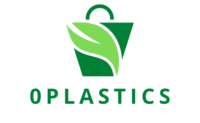In the quest for a more sustainable future, the emergence of plastic-free marketplaces has taken center stage, offering a promising avenue for consumers to make environmentally conscious choices. These marketplaces play a pivotal role in reducing the environmental impact of plastic consumption by reshaping consumer behavior, fostering innovation, and contributing to a broader shift towards eco-friendly living.
1. Curating Sustainable Alternatives:
At the heart of plastic-free marketplaces is the commitment to curating a diverse range of sustainable alternatives. From reusable water bottles to biodegradable packaging, these platforms provide consumers with a carefully selected array of products that minimize or eliminate the use of traditional plastics. By offering viable substitutes for everyday items, plastic-free marketplaces empower consumers to make eco-friendly choices effortlessly.
2. Educating Consumers:
One of the crucial roles of plastic-free marketplaces is serving as educational hubs. These platforms go beyond merely showcasing products; they actively engage in educating consumers about the environmental impact of plastic and the benefits of adopting a plastic-free lifestyle. Through informative content, blog posts, and interactive features, consumers gain insights into the life cycle of plastic and the positive changes that can result from making sustainable choices.
3. Fostering Innovation:
Plastic-free marketplaces act as catalysts for innovation in the quest to reduce environmental impact. By providing a platform for businesses dedicated to sustainability, these marketplaces foster a culture of eco-friendly innovation. From compostable materials to zero-waste packaging, the demand generated by these marketplaces encourages brands to continuously explore and implement cutting-edge solutions that have a minimal impact on the environment.
4. Shifting Consumer Behavior:
Perhaps the most significant impact of plastic-free marketplaces is their influence on consumer behavior. As these platforms gain popularity, they contribute to a fundamental shift in the way individuals approach shopping. Consumers, once accustomed to the convenience of single-use plastics, are now increasingly making mindful choices, opting for products with reduced environmental impact. This shift has a ripple effect, encouraging others to follow suit.
5. Reducing Single-Use Plastics:
A major contributor to environmental pollution is the pervasive use of single-use plastics. Plastic-free marketplaces actively combat this issue by offering alternatives that are designed for reuse and longevity. Reusable bags, containers, and utensils replace their disposable counterparts, significantly reducing the amount of plastic waste generated on a daily basis. This reduction in single-use plastics has a direct and positive impact on the environment.
6. Encouraging Sustainable Practices:
Plastic-free marketplaces not only provide alternatives but also actively encourage sustainable practices. By showcasing the ease and accessibility of eco-friendly choices, these platforms inspire consumers to integrate sustainable habits into their daily routines. From adopting reusable straws to choosing products with minimal packaging, consumers become ambassadors for sustainable living, further amplifying the impact of plastic-free marketplaces.
7. Building a Community of Conscious Consumers:
Beyond transactions, plastic-free marketplaces foster a sense of community among like-minded individuals committed to reducing their environmental footprint. Through social media, forums, and collaborative initiatives, consumers connect, share experiences, and amplify the impact of their collective choices. This community aspect creates a positive feedback loop, encouraging more individuals to join the movement towards sustainable living.
In conclusion, plastic-free marketplaces are not just platforms for commerce; they are catalysts for change in the global effort to reduce the environmental impact of plastic consumption. By curating sustainable alternatives, educating consumers, fostering innovation, and influencing behavior, these marketplaces are instrumental in reshaping the way individuals shop and live. As they continue to play a pivotal role in the sustainability landscape, plastic-free marketplaces are helping pave the way towards a future where conscious consumer choices contribute to a healthier, plastic-free planet.
